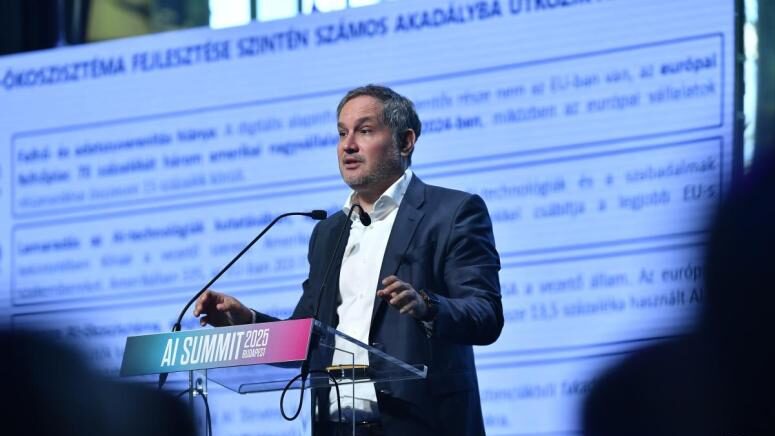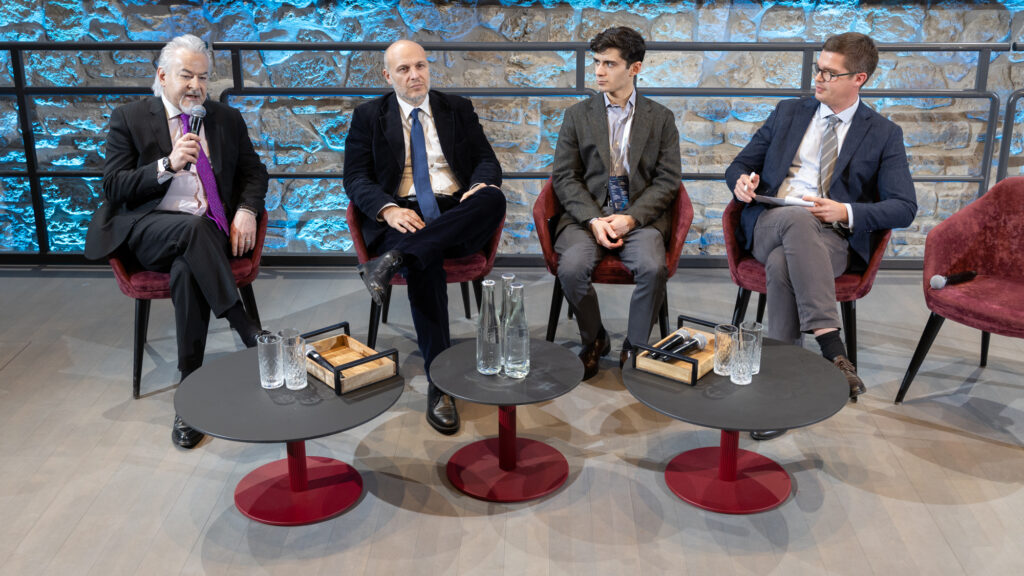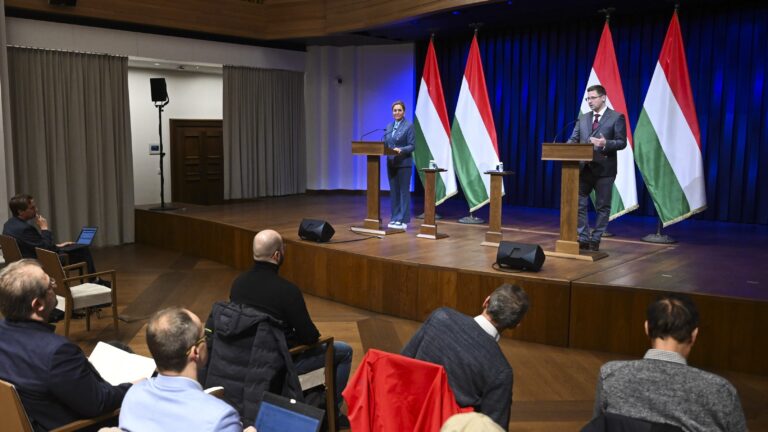Hungary can build on several strengths in the field of artificial intelligence (AI)—its advanced infrastructure, the population’s improving digital skills, and its competitive high-tech exports—Minister for National Economy Márton Nagy said in Budapest on Monday at the AI Summit 2025 international conference.
The minister stressed that AI has already appeared not only in everyday life but also in advertising and film, and that its impact will surpass even that of the internet. ‘It will transform life, but it cannot replace logic—humanity cannot give that up,’ he said.
In his lecture, Nagy argued that the EU faces a severe innovation deficit compared to its main rivals. According to the Draghi-report, addressing competitiveness issues would require massive investment in digitalization and innovation, but Brussels is instead focusing on the arms industry.
Nagy noted that the United States invests far more in productive assets, while the EU is increasingly falling behind in future technologies. In critical AI research, he said, China is dominant.
‘The United States invests far more in productive assets, while the EU is increasingly falling behind in future technologies’
He listed key weaknesses of the EU’s AI ecosystem: the lack of cloud and data sovereignty, research lag, weak ecosystems, scarce funding, overregulation, and expensive energy. Europe’s lag, he added, is also evident in the number of AI foundation models developed.
As development priorities, Nagy highlighted the need to address the low digital intensity of SMEs and to increase the proportion of innovative enterprises. AI adoption among companies is also low and must be strengthened, he said.
To this end, the government is launching two new capital programmes to finance Hungarian AI start-ups in R&D and innovation projects. The review of Hungary’s AI strategy has also been completed, adjusted to changes in the regulatory environment.
The strategy rests on three pillars—‘AI for Society’, ‘AI for Technology’, and ‘AI for Business’—which, the minister stated, will ensure the conditions for competitive and secure AI development.
Related articles:







